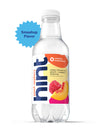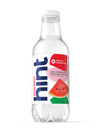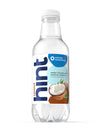

If you’re like almost half of Americans, you aren’t drinking enough water — and the consequences can be hard to recognize until it’s too late
What are the real risks of being under-hydrated? When you don’t drink enough water, your body will try to compensate. It will scramble to make adjustments where possible and prioritize key organs and systems. But as with everything, these adjustments your body makes operate in shades of severity across a spectrum of risks. Plenty of research shows that even a moderately insufficient level of water intake can have negative effects on your body in subtle ways. The problem is that many people don’t associate fatigue, headaches, poor concentration, and bad skin with dehydration. The assumption is that it’s some other malady, or maybe just a poor night’s sleep.
Also worth noting: older adults have a higher risk of dehydration. This is because people often feel less thirsty as they get older, and the body begins to store less water. Same goes for younger folks who engage in a lot of strenuous exercise — the more you sweat, the more vigilant you need to be about how much water you drink.
At its mildest intensity, lack of hydration will appear in subtle ways that might be hard to pinpoint or tie back to your water consumption. Your body wants to be hydrated and when it doesn’t get the water it needs, it lets you know through a variety of means. Dehydration is hard on your body and your body will fight back; it just might not be screaming loud enough for you to hear it. You just need to recognize the signals:
- Fatigue: So many circumstances affect fatigue levels — diet, inconsistent bedtimes, sleep apnea — and hydration is another key factor that might be making you feel lethargic. Even when you’re hitting those ideal 8 hours and getting plenty of sleep, if you don’t hydrate consistently, fatigue can creep up on you during the day. Also, you want to make sure that your mouth, nose, and throat don’t dry out at night; when your mucous membranes are parched, it undermines your ability to get quality sleep. (source: https://www.health.harvard.edu/healthbeat/fight-fatigue-with-fluids)
- Headaches: Ever had a sudden headache appear during the day without explanation? Headaches are a classic undiagnosed result of poor hydration, and it’s tied to a hormone called angiotensin that your body produces when your fluid levels dip. That hormone signals to your body to constrict its blood vessels to conserve hydration throughout the rest of the body. Your brain is particularly susceptible to the effects of poor blood flow, and it is sure to let you know it with a nasty headache. (source: https://my.clevelandclinic.org/health/diseases/21517-dehydration-headache)
- Difficulty concentrating: When you’re thirsty, it’s just that much harder for your brain to focus, because it’s dealing with the internal “triage” it has to perform in order to compensate for low hydration. Next time you’re feeling a little scattered, take a break, fill a glass with water, and pull a couple deep breaths into your lungs; you’ll likely start to feel your thoughts come into focus. (source: https://www.ncbi.nlm.nih.gov/pmc/articles/PMC4207053)
- Unhealthy skin tone: When asked, every celebrity revered as an “ageless beauty” will attribute their supple and youthful skin to two practices: vigilant protection from the sun with a variety of skin creams and — you guessed it — drinking water. All cells benefit greatly from proper hydration. The ones that are most visible in the epidermis are where you can plainly see that benefit. So be sure to hydrate from the inside as well as on the surface. (source: https://www.healthline.com/health/dehydrated-skin)
- Mood shifts: Being thirsty can also lead to irritability, and because of your body’s need to compensate for it, you might find your frame of mind very unpredictable. This can become even more problematic if your solution to being thirsty is to drink a sweetened beverage – which may solve the issue of your dry mouth but will then unleash insulin in your bloodstream and play havoc with your energy levels. (sources: https://today.uconn.edu/2012/02/even-mild-dehydration-can-alter-mood/ and https://www.webmd.com/depression/news/20130104/sweetened-drinks-depression)
As your levels of hydration drop, you might encounter some specific health issues that aren’t as easy to ignore:
- Acute skin conditions: Eczema, itchy skin, and psoriasis can all result from being under-hydrated. Of course, all of those conditions have several underlying causes, but lack of fluids can exacerbate many skin conditions. (source: https://www.webmd.com/beauty/ss/slideshow-signs-skin-hydration)
- Erectile dysfunction: No one loves talking about this topic — which may be why dehydration is seldom discussed as a contributing cause! This issue is also tied to the body producing that hormone called angiotensin, which alerts blood vessels to constrict. As is the case with limited blood flow causing headaches, the tightening of the blood vessels has a direct impact on the function of male sexual organs, and again, while it is not often the main cause, under-hydration can make it worse. (source: https://www.healthline.com/health/mens-health/dehydration-and-erectile-dysfunction#whats-the-link)
- Joint pain: One of the main functions of water in the body is to keep cartilage, connective tissue, and fascia lithe and elastic. When you don’t drink enough water, those systems suffer – and so will your flexibility and mobility. (source: https://bonejoint.net/blog/hydrate-for-better-performance-and-less-joint-pain/)
- Blood pressure variability: Dehydration can affect blood pressure — both causing it to dip and spike for different reasons. A serious lack of water in the bloodstream can result in your blood pressure decreasing as your overall blood volume goes down and there’s less of it for your heart to pump through the circulatory system. When your blood pressure drops rapidly, your organs don’t receive sufficient oxygen and nutrients, and you might go into shock.
On the other end of the extreme, when you don’t drink enough water, over time the sodium composition in your blood can increase. That can trigger the body to release a hormone called vasopressin, which can cause blood vessels to constrict. The narrower our blood vessels, the harder your heart is going to have to pump in order to maintain proper circulation. Now, your blood pressure will start ticking up.
In either case, it’s more proof that water is your friend. (source: https://www.healthline.com/health/dehydration-and-blood-pressure#high-blood-pressure)
In the extreme, depriving yourself of water can result in very serious conditions and harm. These conditions, like the ones above, usually have several root causes, but they are exacerbated by lack of hydration:
- Kidney stones: Ongoing underhydration over time can lead to kidney stones, which collect when crystal-forming substances in urine — such as calcium, oxalate and uric acid — aren’t diluted by water. These stones are often inoperable and extremely painful since the only recourse is just letting your body slowly expel them by passing the stones through narrow passageways in the kidney and into the bladder. Fittingly, the medical advice you will likely receive to help pass kidney stones more easily is to drink copious amounts of water. (sources: https://www.mayoclinic.org/diseases-conditions/kidney-stones/symptoms-causes/syc-20355755 and https://www.kidney.org/newsletter/can-dehydration-affect-your-kidneys)
- Constipation and Intestinal blockage: Water is critical to the digestive process, moving our food smoothly through the GI tract. This is why drinking water during meals can be so important. If your small intestines aren’t properly hydrated, food will end up moving more slowly through your digestive system, and given that we have 22 feet of intestines coiled in our abdomen, adhesions can develop in all the bends and turns of the intestines if they aren’t properly lubricated. Like kidney stones, surgery is only performed in worst-case scenarios, resulting in a very painful process of naturally unblocking the digestive system. (source: https://www.nature.com/articles/1601907)
- Fainting: Fainting spells are one way your body protects itself from some more extreme consequences of dehydration, allowing it to maintain proper body temperature and organ functions. Fainting is also often the result of a confluence of issues, but lack of water can be a major contributing factor. (source: https://my.clevelandclinic.org/health/symptoms/21699-fainting)
- Organ failure: Fierce heat conditions paired with a severe lack of water, will cause your blood pressure to drop precipitously (as discussed above). Your body will then go into shock, triggering your kidneys to shut down first, followed by a domino effect of other critical organs. That’s why it’s essential to start drinking water early and regularly on hot, humid days that exceed 110 degrees (which are, sadly, becoming much more common). Also, stay indoors, seeking proper shelter and/or cooling centers if your home does not have air conditioning. (source: https://newsnetwork.mayoclinic.org/discussion/dehydration-can-lead-to-serious-complications/)
From the mild to the more dire consequences of not drinking enough water, it’s important to be cognizant of the signals your body is sending you. Some might be hard to recognize if you aren’t on the lookout for them. And getting enough water in your system also requires you to be proactive and attentive about your daily intake.
The most oft-cited reason for people struggling to maintain proper levels of hydration is that many find water to be boring or bland. Or — once people get to their second or third liter in a day, the lack of any taste in water makes the process feel like a chore. That’s why it’s great to have a bottle or two of Hint on hand to bring a little variety to your hydration. Hint offers over twenty fruit flavors and smash-ups, as well as caffeinated and sparkling options to help you avoid the minor and major risks of dehydration.




